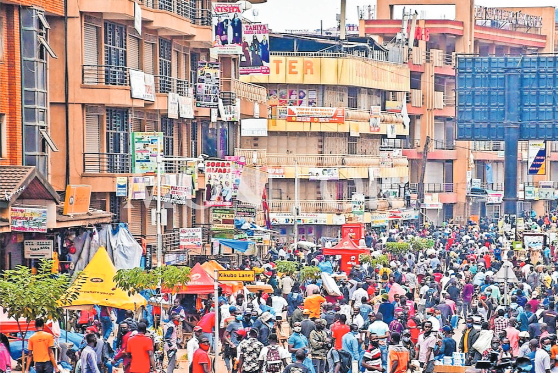Prime
Bridge widening income inequality gap

Author, Brian B. Mukalazi. PHOTO/FILE
What you need to know:
- Income inequality is quietly, but effectively impoverishing millions of Ugandans. I recently met a 50-year old man, somewhere in northern Uganda, who was willing to swap all his household property in order to settle his daughter’s medical bill of Shs300,000. He could not afford to settle the bill even when he worked 10 straight hours daily.
You don’t need to be an economist to notice the widening income disparities in Uganda. Societies across the country have become less equal in terms of wealth and income.
Income inequality is quietly, but effectively impoverishing millions of Ugandans. I recently met a 50-year old man, somewhere in northern Uganda, who was willing to swap all his household property in order to settle his daughter’s medical bill of Shs300,000. He could not afford to settle the bill even when he worked 10 straight hours daily.
Many commentators from all corners of the country have expressed concern and views about the increasing income inequality in the fabric of the Ugandan society. But the question remains: What went wrong? Why have the dreams of our forefathers failed to become reality?
In my view, corruption is the biggest contributor to this worrying state, which also offers an existential threat to the long-term viability of our country and quite honestly, this is too obvious for everyone to see. Uganda is a country that has been badly wrecked by corruption.
In the same vein, estimates for the total amount of money stolen each year in developing countries range from a massive $20 billion to an almost unimaginable trillion dollars.
At a time when ordinary Ugandans continue to work for subsistence wages and with their wealth having stagnated for years, some government officials and politicians have accumulated a fortune through shadowy schemes that are operated alongside official government apparatus.
These days, most government initiatives are opportunities for an insider to get rich. These individuals seem to care more about their own comfort than the well-being of the nation and many find themselves with more money than they need, which they instead use to fund luxurious lifestyles.
Unlike in the past, where the appetite for stealing was limited by the fact that the local market couldn’t absorb huge sums of stolen money, without it being noticed, today’s modernised global financial system offers a new absurd opportunity.
For instance, if one steals money, they don’t have to hide it in a safe or under the bed where the mice can get at it. Instead, they stash it in a magic box, which spirits it away at the touch of a button, out of the country to any desired destination.
Let’s also take a look at our tax system: Due to the unfair and exploitative nature of our tax regime, some wealthy people continue to dodge taxes while those least able to pay are forced to shoulder the tax burden. This has further expanded the divide between those who own assets and those who don’t.
The damage that income inequality has caused to our country is as clear as day and has far reaching implications.
Therefore, whereas it appears difficult to implement, government should aim to align the interests of the strong and the weak; the poor and the rich, so that all can equitably benefit from their sweat. This should be done firmly and repeatedly.
Brian Mukalazi,




